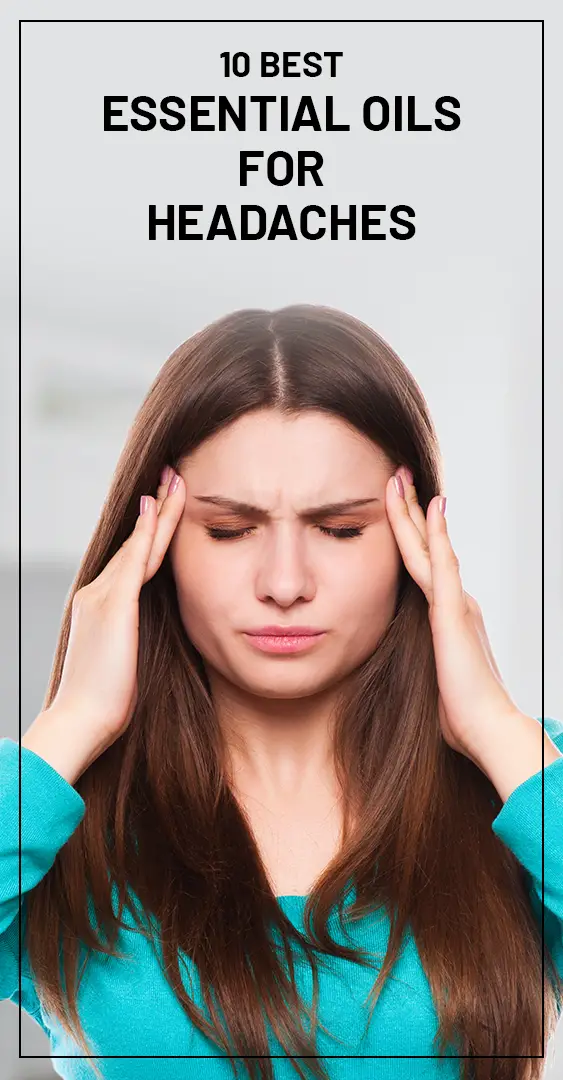
Important: This article is for informational purposes only. Please read our full disclaimer for more details.
Essential oils are concentrated plant extracts that retain the natural scent and flavor of the plant. They are used for a variety of purposes, including aromatherapy, skin care, and as natural remedies for various ailments. While essential oils have been used for centuries, there is still much we don’t know about them. How do they work? Are they safe? What are the best essential oils for headaches? We’ll answer all of these questions and more in this comprehensive guide to using essential oils for headaches.
What Causes Headaches?
There are many different causes of headaches, including stress, lack of sleep, dehydration, and eye strain. If you suffer from frequent headaches, it’s important to see a doctor to rule out any underlying medical conditions.
In many cases, however, headaches are caused by muscle tension in the head and neck. This type of headache is often referred to as a tension headache.
How Do Essential oils Work for Headaches?

Essential oils are thought to work for headaches by reducing muscle tension and inflammation, improving circulation, and promoting relaxation. While there is still much research to be done on the efficacy of essential oils for headaches, some studies have shown promising results.
A study published in the Journal of Alternative and Complementary Medicine found that participants who inhaled peppermint oil had significantly reduced headaches and muscle tension. Another study, published in the journal Phytotherapy Research, found that a blend of lavender and peppermint oils was effective in reducing headaches.
Are Essential oils Safe?
Essential oils are generally safe when used properly. However, they can cause side effects when used in excess, so it’s important to use them sparingly.
If you’re pregnant or breastfeeding, talk to your doctor before using essential oils. It’s also important to choose high-quality essential oils from a reputable source, as some oils on the market may be diluted or contaminated.
[ Read: Home Remedies To Get Rid Of Headache ]
What Are the Best Essential Oils for Headaches?
There are many different essential oils that can be used for headaches. Some of the most popular options include these 10:
1. Lavender oil
Lavender oil is one of the most popular essential oils for relaxation. It’s also been shown to be effective in reducing headaches and sometime headaches caused by migraine. It is mainly used to improve sleep. A study showed that inhaling lavender essential oil is a safe treatment to reduce headaches from migraine.
2. Rosemary oil

Rosemary oil is a popular essential oil for headaches. It’s said to improve circulation and relieve muscle tension. It works similar to peppermint oil and eucalyptus oil according to a source.
[ Read: How to Use Peppermint Oil for Headaches ]
3. Eucalyptus oil
Eucalyptus oil has a cooling effect that can help to relieve headaches. It’s also said to improve sinus problems by unclogging nasal passages and relieving headaches caused by it. In a study it is shown that inhaling essential oil of eucalyptus can lower blood pressure.
4. Peppermint oil
Peppermint oil is known for its cooling and refreshing properties. It’s often used to relieve headaches. Applying peppermint essential oil on the forehead and temples helps relieve tension headaches. A study also showed that peppermint oil was able to significantly reduce the intensity of headaches caused by migraines when applied in a gel form on the forehead.
5. Orange oil
Orange oil has a refreshing and uplifting scent that can help to improve your mood and reduce stress. It’s also said to relieve headaches caused by dehydration. Just add a few drops of orange oil in a bowl of cold water and dip a clean cloth into it and wring it and apply it on your forehead while you relax for a while.
6. Lemon oil
Lemon oil is said to be refreshing and uplifting. It’s also said to improve circulation and relieve muscle tension. While this helps you calm down and relieve tension headaches.
7. Chamomile oil
Chamomile oil is said to be a relaxant and can help to relieve headaches. It’s also said to reduce inflammation and relax the muscles. So, this essential oil is great for headaches caused by tension. Dilute a few drops of chamomile oil in a carrier oil and use it for hot water aroma therapy or for a bath.
Caution: Pregnant woman should not use chamomile oil as it may lead to miscarriage.
[Read : Essential Oil For Keratosis Pilaris]
8. Geranium oil for Hormonal Headaches
Geranium oil can be used to relieve headaches caused by hormonal changes. It helps to balance hormones and also has a calming effect that can help to reduce stress. Add 5-6 drops of geranium oil into one tablespoon of carrier oil and add it to your bath water.
9. Frankincense oil
Frankincense oil is said to have a calming effect that can help to relieve headaches. It’s also said to improve circulation and reduce inflammation. A study showed that inhaling frankincense oil was able to significantly reduce the intensity of cluster headaches.
10. Ginger oil
Ginger oil is said to be a powerful anti-inflammatory and can help to relieve headaches. It’s also said to improve circulation and reduce muscle tension. A study showed that ginger oil was able to significantly reduce the intensity of -headaches caused by migraines and it increases blood flow to protect against bad cholesterol.
[Read : The 10 Best Essential Oils For Burns]
How to Use Essential Oils for Headaches?
There are many different ways to use essential oils for headaches. Some of the most popular options include:
- Diffusing the oils in a diffuser
- Mixing the oils with a carrier oil and massaging them into the temples or neck
- Adding the oils to a bath
- Using a compress soaked in essential oils
Things to Know Before Use
- If you’re new to using essential oils, start with a low concentration and increase gradually as needed. It’s also important to do a patch test before using any new oil to make sure you’re not allergic.
- When diffusing essential oils, start with a low setting and increase as needed. diffusing for too long can actually cause headaches in some people.
- If you’re using essential oils topically, mix them with a carrier oil such as coconut oil or jojoba oil before applying.
- Avoid contact with the eyes, ears, and mucous membranes.
It’s also important to talk to your doctor before using essential oils, especially if you have a medical condition. Some essential oils can interact with medications, so it’s important to check with your doctor before using them.
You Might Also Like:
- 8 Best Essential Oils for Anxiety – Benefits & How to Use?
- The 10 Best Essential Oils for Depression
- 10 Best Essential Oils For Hemorrhoids Pain
- 8 Essential Oils for Sore Muscle Pain Relief
- 8 Essential Oils for Migraine Pain Relief | How To Use It
- 15 Best Essential Oils for Cough: Benefits & How to Use
- 10 Calming Essential Oils for Relaxation
- Essential Oils for Hair Loss: Benefits and How to Use
- Cliganic USDA Organic Aromatherapy Essential Oils Review
- Dr. Denese SkinScience Essential Lipid Anti Aging Power Infusion Dry Oil Review
- Radha Beauty Eucalyptus Essential Oil Review
- The 10 Best Essential Oils For Itchy Bug Bite Relief
- How to Cure a Headache Fast with Apple Cider Vinegar
















